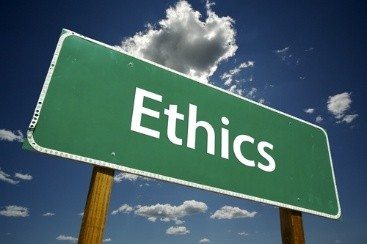 Is it ever ethical for a physician to prescribe a treatment to a patient that they know to be entirely without efficacy? Is it ever possible to do this without deceiving the patient to some degree? I think the answer to both questions is a clear “no.”
Is it ever ethical for a physician to prescribe a treatment to a patient that they know to be entirely without efficacy? Is it ever possible to do this without deceiving the patient to some degree? I think the answer to both questions is a clear “no.”
Within the flipped reality of “alternative medicine,” however, it suddenly becomes acceptable to deceive patients and sell them worthless treatments, as long as the deception was minimally successful.
A recent editorial in Scientific American by Allison Bond addresses this question. She manages to hit upon many of the reasons placebo medicine is inappropriate, but her reasoning is a bit muddled and she comes, in my opinion, to the wrong conclusion. She wraps her commentary in an anecdote of a terminal patient for whom she cared who found relief from reiki. She concludes:
Of course, when it comes to treating patients with painful, life-threatening diseases, the goal of our care should be to lessen suffering, regardless of where such relief originates. A few months after Ms. W left the hospital, I learned that she had died, and the news hit me hard. I thought back to her treatment under our care and hoped that even among the misery, we had eased her suffering through our therapies—“alternative” or not.
I think that Bond goes through the same thought process that many physicians go through. She has some understanding of the trade-offs, but in the end as long as their patients say they feel better, they are OK with using placebos. This position, however, is misguided.
Ineffective treatments are not necessary
Bond acknowledges that treatments such as reiki and acupuncture may work solely through providing companionship, attention, and a moment of respite. That is, in fact, what the scientific research shows. Reiki is nothing more than a form of healing touch, promising to using non-existent energies to promote healing or the even more vague concept of “well-being.”
For both reiki and acupuncture, when studies are properly controlled they find that the treatment is no more effective than the ritual of treatment without the actual intervention, or just having someone spend time with a patient. The time and positive attention seem to be the only variables that matter.
The most logical conclusion to derive from this fact, which seems obvious to me, is that we should provide companionship and positive attention without the pseudoscientific magical claims. In fact, you can do this while administering science-based treatments, or just as an intervention in themselves. We used to call this good bedside manner, or just good nursing care, now it is marketed to patients as a separate intervention wrapped in utter nonsense.
If there is a lesson to derive here it is that, if we wish to do more for patients in terms of their mood, quality of life, and overall experience, we can formalize giving them companionship and positive attention as a thing unto itself, without the pseudoscience. This is not a new concept to hospitals, but if you think we need to do more, then do more.
The downsides of pseudoscience
Bond mentions only two negatives to relying upon ineffective treatments for their placebo effects, financial cost and opportunity cost. Delayed proper care or substitution for proper care may lead to bad outcomes. The implication is, as long as you don’t substitute alternative treatments for evidence-based care, there is no problem.
Although she mentions financial cost, she glosses over this point. When you essentially give someone license to sell magic and false hope to desperate sick people, it should come as no surprise that patients will be victimized by this. Many “alternative” clinic and practitioners charges tens of thousands or even hundreds of thousands of dollars for their ineffective treatments.
The financial costs can be devastating, and they are piled on top of the costs of regular medical care. The family of a terminal patient, who are essentially emotionally blackmailed into spending money they cannot afford on a dubious treatment, are left with an additional financial burden on top of the loss of a loved-one.
False hope can also be psychologically devastating. Properly managing a terminally ill patient can be very challenging. Practitioners need to walk a fine line between keeping them focused on the positive, emphasizing any legitimate chance they have for recovery, while preparing them and their family for the worst. You have to help them navigate through horrible choices, such as choosing between extra months of survival vs quality of life, or whether or not they will find life permanently dependent on a ventilator acceptable.
Into this delicate balance comes an alternative practitioner, like a bull in a china closet, making outrageous promises of a cure, and sowing seeds of discontent with the medical system. I have seen patients go to their graves convinced the alternative treatment was the answer, even when it was obvious it was doing nothing. I have seen others realize they were had, devastated by the lost precious time and their last hopes dashed.
Rather than being eased into a position of acceptance, they were kept in denial and then dropped off a cliff.
Perhaps the most insidious negative of hospitals providing reiki or other such treatments to patients is that it legitimizes pseudoscience. Practitioners of dubious treatments are desperate for legitimacy, and association with a hospital or university is the golden ticket.
It is reasonable for patients to assume that a practice is legitimate if it has such as association. This puts them at the mercy of charlatans, who will then instill in them distrust of the medical establishment and belief in bizarre or pseudoscientific notions.
Even if initially patients are not using “alternative” treatments as a substitute for real care, the next time around (if there is a next time) they might, because they were convinced of its legitimacy by the hospital and well-meaning but naïve physicians and academics.
Finally, I think it is unethical to deceive patients. Deception robs them of their autonomy and informed consent. It is also excessively paternalistic. There is simply no alternative treatment without some level of deception. You cannot talk about non-existent “energy” or go through the ritual of acupuncture with a straight face without buying into the underlying pseudoscience to some degree.
Even avoiding direct health claims, and couching the treatment as, “some patients report they feel better,” contains implied claims that some desperate patients will latch onto.
In all other aspects of health care the standard of care is for physicians to be completely honest. (Admittedly, there are nuances here, like not unnecessarily scaring patients with premature information, but deception is never acceptable.) The fact that calling a treatment “alternative” erodes the ethics of informed consent is just one more bit of evidence that the entire “alternative medicine” movement is about eroding the standard of care in order to allow for treatments that were previously considered fraudulent.
Conclusion: No, it’s not OK to lie to patients
Physicians and academics, like Allison Bond, who have been convinced that it is OK to give patients ineffective treatments are mostly well-meaning, but profoundly naïve. They miss the extremely harmful downsides of eroding informed consent and deceiving patients while legitimizing pseudoscience and giving power to practitioners who exist along a spectrum from self-deluded to heartless con-artists.
Physicians like Bond are seeing just the tip of the iceberg, and this is by design. The face of “alternative” medicine that is presented to hospitals, universities, and also politicians is a Trojan horse. It is the soft practices, like reiki, offered as a “complementary” treatment in addition to standard care, for pure symptomatic relief.
It is meant to convince the establishment that this little deception is OK, as long as patients report that they feel better. Hospitals love it because they can charge a fee for additional services. Academics are just trying to have an open mind. Physicians like having additional options to help their patients. So what if a practitioner waves their hands over a patient and makes some vague claims about energy and healing?
This small (I would argue not-so-small) deception is the portal of entry into a world of horrible exploitation. “Alternative medicine” has been deliberately packaged as one thing, which is another deception. Legitimizing one alternative treatment is used to legitimize them all, and to promote the idea of placebo medicine and compromise patient autonomy just enough.
Physicians and academics need to hold the line. We need to be uncompromising in our advocacy of our patients, and that means zero tolerance for pseudoscience and deception. Do not be lulled by the soft veneer – beneath the surface is a world where our patients are horribly victimized by charlatans. We cannot be party to that, no matter our intentions.

